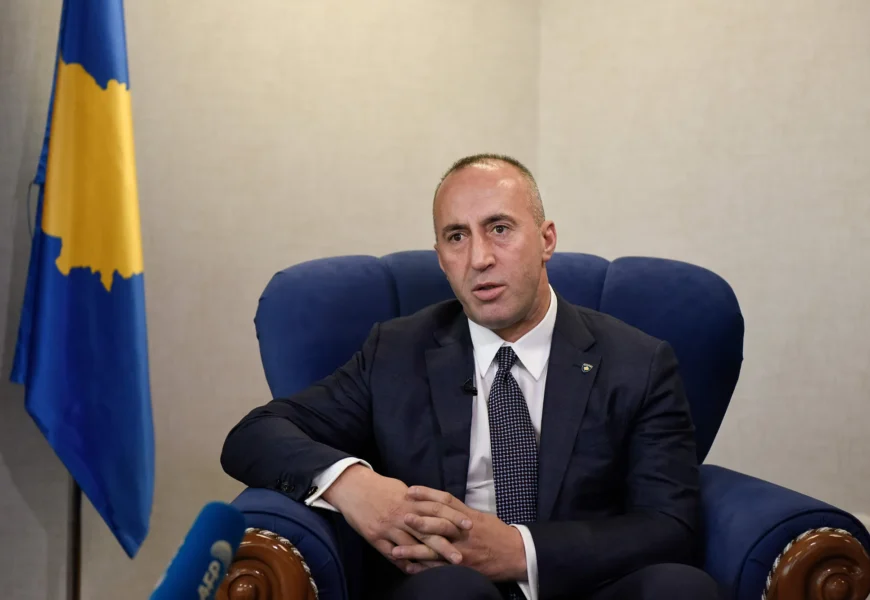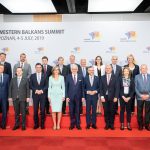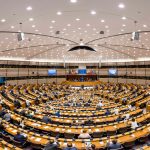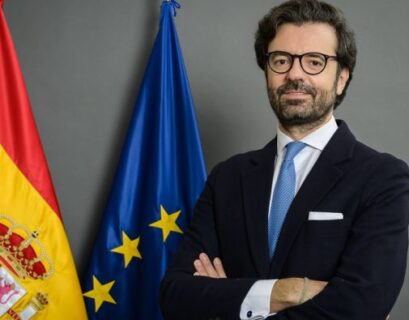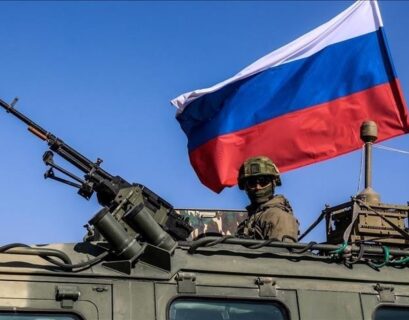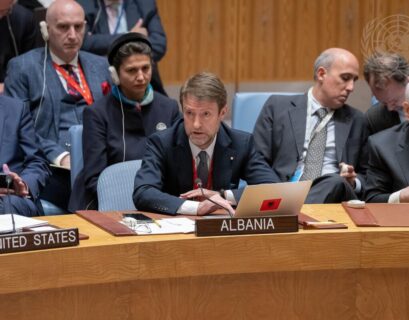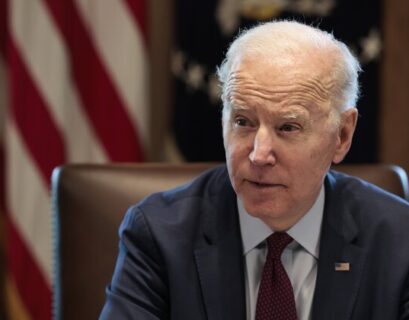BEKIM KUPINA
These political crises have in common a source consisting of two key components, namely their domestic and foreign elements. The former is often related to Kosovo’s ongoing negotiations with Serbia which escalates the rift among domestic political factions. As a result, subsequent Kosovo governments have not managed to stay in power for the entire mandate. Apart from the outgoing Haradinaj-led government, which managed only two years in power, previous governments have fallen into their third year in power.
Hashim Thaci, although a dominant political figure in the country, saw his government fall twice, in 2008 and 2014, before finishing its mandate. Similarly, Isa Mustafa of LDK was unable to avoid the course. The latest in the list is Ramush Haradinaj, who unexpectedly resigned, just 22 months after coming to power.
His resignation however bears some historical resembles. During the resignation speech, Mr. Haradinaj argued that he was invited by the Kosovo Special Chambers in the Hauge for questioning. Similarly, in 2005 he resigned from his role as the country’s Prime Minister, just 100 days after claiming the office, to appear before the ICTY in the Hague to be tried on accusations that he had committed war crimes and was acquitted in 2008. Prior to this, he faced justice in 2017, when he was stopped by French authorities in response to an international warrant issued by Serbia, only to be released later that year.
Although personally costly, each case has yielded significant political benefits for Haradinaj, whose popularity has soared after each case. Following his release from custody in France, he came back to claim the office of the Prime Minister by forging a coalition with PDK, ending three months of political deadlock.
As a Prime Minister, he pursued a conciliatory tone which was particularly present in his rhetoric toward the international community. Prior to that role, he had been a staunch opponent to the demarcation with Montenegro which Kosovo’s international allies had pressured local authorities to finalize. Its conclusion was made possible by a modification in the agreement which underlined the possibility for revision by a bilateral commission.
When in power, Haradinaj sought not to revise the demarcation, choosing instead to ignore it. In the last hours of his government, a working group responsible for treating the government was formed which seems unlikely to serve a genuine purpose beyond serving as an electoral talking point. Interestingly, the decision to sideline the issue has not impacted his premiership or his popularity. Irrespective of the outcome, of either the demarcation or proceedings at the Special Chambers, Haradinaj enjoys local support, and is dubbed by many as a hero, an epithet that has accompanied him throughout his career.
His perseverance is optimized by his team, a trait that bodes well with locals. Haradinaj’s decision to impose a tax on imports from Serbia and Bosnia and Herzegovina, initially by 10 and later by 100 percent is a case in point. Seven months after the decision was taken, he has resisted the pressure of Kosovo’s international allies to revoke them. His firm stance has consolidated his public reputation and as a result, yielded tremendous political capital. Although, the decision was a response to Serbia’s diplomatic pressure to undermine Kosovo’s statehood, the public saw it as a patriotic stance against Belgrade. In face of the growing pressure to reverse the decision, Haradinaj turned the decision on tax into a political tool by conditioning its reversal with the recognition of Kosovo by Serbia.
Understandably, this a calculated move given Belgrade’s strong opposition to Kosovo’s independence. Yet, this was a calculated move on Haradinaj’s part, as it appealed to the patriotic sentiment in Kosovo. Seen in the light of this, his resignation seems more closely connected with the tax, than his appearance in front of the Special Chambers, whose establishment was not supported by his party.
Upon his resignation he declared that he did not wish to appear before the court as a Prime Minister which fazed well with the public which notably supported the decision. However, the decision to resign resembles a mere political scheme to dwarf a planned vote of confidence for which Haradinaj’s coalition partners had seemingly secured the enough numbers from the opposition. The fact Haradinaj continues to act as a Prime Minister by holding cabinet meetings despite his resignation enforces this view.
Recently AAK’ rift with PDK and the Social democrats has grown. They only learned about Haradinaj’s resignation through media, catching them both by surprise.
However, Haradinaj’s attempt to capitalize on the resignation as a patriotic act toward his country faded quickly. Since his resignation, he remains the only key political leader to demand early elections which means that his resignation was an attempt to translate the publics appeal into votes. Yet, his request for early elections has not been resolved. Kosovo’s state authorities are continually under international pressure to continue with a technical government or an alternative formula which avoids early elections despite the Premier’s resignation. Early elections would further postpone negotiations with Serbia, which now remain frozen amid hopes that an epilogue to the process will be found by the end of the year.
One of the options is to designate a new technical Prime Minister by the party in power (PDK). However, given that the parliament has not been dissolve and the President has not announced a date for the next elections, other options remain on the table. But it is likely the issue will be put to the Constitutional Court, as such clouded legal questions are often treated.
Kosovo faced a similar situation in 2005 when Haradinaj resigned to appear before the ICJY and the country averted early elections with the selection of a technocrat, Bajram Kosumi, to lead the government. The former also resigned and was later replaced by Agim Ceku as the country’s Prime Minister while early elections were once again avoided. Current conditions such as polarization make it unlikely that opposition parties would support PDK in picking a new Premier, make it unlikely the scenario will be repeated in full. Improvising political formulas whose aim is to avoid early elections by all costs, could have sever effects on the legitimacy of institutions, enable maltreatment of the dialogue with Serbia, increase popular dissatisfaction with the government and foster political tensions.
In relation to neighboring countires, Haradinaj has not been confrontational. In march 2018 he welcomed his counterpart Zoran Zaev, the Prime Minister of North Macedonia and his wife to his home. Nearly a year later, he repaid his visit. In spite of Haradinaj’s initial strong opposition to the demarcation with Montenegro, his relation with the country’s Prime Minister Dushko Markovic has been cordial.
However, he has not manifested an equally close and cordial relationship with Edi Rama, the Prime Minister of Albania.
In contrast, there have been several instances where the two have exchange messages marred by criticism and irony.
The cause of demarcation which Haradinaj exploited to criticize Mustafa’s government, Mr. Rama dubbed it “invented.” Ever since, this dynamic has been a key feature of their relationship.
Following the Berlin Summit earlier this year, Haradinaj claimed that both Edi Rama and Hashim Thaci had pressured him in the presence of international partners to revoke the tax imposed on products from Serbia and Bosnia and Herzegovina – an accusation Mr. Rama has rebuked.
In the aftermath of Haradinaj’s resignation, Rama made a pronouncement on Special Courts invitation of Kosovo officials while avoiding the mentioning of his counterpart. Instead, he sufficed to say that the invitations constitute “a new challenge.”
The apparent embrace of the idea to swap territories with Serbia as part of a final deal between Kosovo and Serbia by Rama, Thaci and Vucic has put Haradinaj at odds with them as a staunch opponent of the idea, a position which in turn has increased his popularity at home.
The relationship between Rama and Haradinaj aggravated at the time when the idea of border changes became part of the political agenda, coinciding also with the dismissal of Ditmir Bushati from the Rama government. Bushati had served as Albania’s Minister for Europe and Foreign Affairs under Rama’s first mandate and was apparently opposed to the idea as well.
Haradinaj however, kept his contact tabs open with Albanian officials by fostering a closer personal relationship with Ilir Meta, the country’s president. In January 2017, at the time when Mr. Meta served as Albania’s Speaker of the Parliament, he visited AAK’s offices while Mr. Haradinaj was being held in France. Two days after Haradinaj’s resignation, Mr. Meta met with Haradinaj in Prishtina, the purpose of which was to “exchange ideas on political developments in Kosovo and Albania.” They are united in their opposition to the land swap; which Mr. Meta has considered “dangerous.” Similarly, Haradinaj has been strongly opposed to the idea by considering border revisions a “new wave of ethnic divisions and a potential start of violence.”
Both Haradinaj and Meta have recently increased their rhetoric against the international factor meddlingin doemstic affairs. The former has been outspoken against them on their stance toward negotiations with Serbia and the revocation of tax, and the later over the justice reform and the June 30 local elections.
Relations with serbia however remain complicated. The dialogue process has stagnated while the international community’s pressure to revoke taxes has not yielded results. An impetus will take place when an agreement to revoke the tax in a way that bridges the bdemands of both Prishtina and Belgrade. Naturally, to reach such an agreement, the international community will favor a Prime Minister capable of compromise, with the willingness to move away from Haradinaj’s unnegotiable position, which will in turn melt the ice between the two capitals and pave the way for negotiations to restart again.
The president has decided to prolong setting a new date for elections until the LDK’s congress in August 3rd whose result will determine if the party will be led by the incumbent or a new leader.
Meanwhile, this period will serve provide each political party to reevaluate their position and determine whether early elections or an alternative coalition would best serve their interests.
It remains unlikely the AAK or any other opposition party will support a coalition with the PDK instead of early elections.
Polls so far suggest the LDK would emerge as the country’s leading party, followed by VV, PDK and AAK. However, it is difficult to establish whether such an outcome would be reflected if elections were to be held. Not least, because their respective positions on difficult issues such as negotiations with Serbia, tax on Serbia’s imports or visa liberalization during the campaign.
Each alternative will be significantly impacted by political parties’ approach to dialogue with Serbia.
What is clear however, is that the party with most seats in the Parliament, PDK, is politically anxious. There are two main issues contributing to its anxiety. First, several of its key leaders have been questioned by the Special Chambers in the Hague. Second, several allergy corruptive affairs linked with the party have marred its reputation over time. Faced with the difficulties awaiting the next administration, PDK could opt for elections and happily see a LDK-VV coalition handle the challenging issues while it consolidates its future.
This tactic would favor PDK in the long run given that LDK-VV lead negotiations with Serbia are likely to fail given VV’s strong position on the dialogue with Belgrade.
This deadlock is likely to be over by the first week of August, time when it will become clear whether a new date for elections will be announced or a new candidate will be nominated to become the country’s Prime Minister. Regardless, it is evndent that Kosovo is faced with a dual crisis, namely internal and external. The itnernal crisis is a result of the political instability and the enhanced political among the country’s political rivals. Its external crisis derived from the dialogue with Serbia, EU integration processes, especially the publicly sensible issue of visa liberalization, and the country’s aspirations for international recognition.
To avert a repetition of the current crisis, it is fundamentally important that in the upcoming elections, Kosovo elects a majority government to carry on the important and difficult internal and external issues. As it is often the case, in crisis there is winners and losers. Some political parties may emerge stronger, but it is unlikely this will yield any benefits to the country’s citizens.


